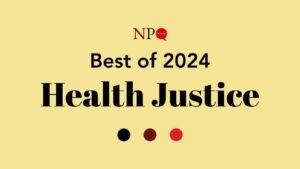June 15, 2016, Star Tribune
Matter, “an organization founded at the intersection of faith and opportunity” formerly known as Hope for the City, working with the Minnesota Community of African People With Disabilities shipped five sea containers of medical equipment to Mogadishu “to create ‘the best-equipped hospital in Somalia.’”
Some 25,000 Somalis live in the Minneapolis-Saint Paul (Twin Cities) area. In-kind donors making this initiative possible include Minnesota’s primary medical providers such as Allina Health, HealthPartners, and the University of Minnesota.
“We’ve done work in about 30 countries, and I’ve never seen a situation like Somalia,” said Jeremy Newhouse, senior vice president of operations for Matter. “You find there are no hospital beds in a room; people are lying on the floor. In an operating theater, there is no operating table, just some table. They are doing surgery without anesthesia. The lab is covered in flies.”
Mogadishu, once a beautiful city on the sea, has been shattered by various Islamist and clan- or warlord-affiliated militias embroiled in an ongoing civil war that broke out in 1991. The city is synonymous with Islamist militarism, drought, and lawlessness. It is probably best known in the West as the setting for the book and movie Black Hawk Down, showing how approximately one thousand Somalis and 18 Americans lost their lives over the twenty hours that constituted the first Battle of Mogadishu.
Somalia’s weak government struggles to help the city and its traumatized people. In 2010, Mogadishu was home to the largest concentration of internally displaced persons on earth. Conditions worsened by 2011, as described in this NPQ report.
Sign up for our free newsletters
Subscribe to NPQ's newsletters to have our top stories delivered directly to your inbox.
By signing up, you agree to our privacy policy and terms of use, and to receive messages from NPQ and our partners.
When does a charity have to admit that the community or country or region it is trying to help really can’t be helped, at least not now? Dominated by warlords as well as the al-Shabaab Islamic movement allied with Al Qaeda, Somalia now barely functions as a country. Expats working with NGOs there describe aid activities as a “delivery nightmare,” more difficult than operating in Afghanistan or Iraq. Inside of Mogadishu, the capital, conditions for aid workers are perilous. Outside of Mogadishu, sources tell us, it is all but impossible to function.
Consider this September 2015 report in The Atlantic describing how the few remaining hotels in Mogadishu help visitors procure visas and the required security.
They can book at least four, and preferably six, armed guards who will form a complete perimeter defense around you, with their chief beside you, usually scanning the rooftops with binoculars for snipers. This armed crew, together with two bullet-resistant SUVs in constant contact by walkie-talkie, set me back $750 a day when I visited in 2012. The cost has since risen to $1,350 a day, with little room to bargain.
When al-Shabaab and an African Union peacekeeping force fought for control of the city, even a visit would have been out of the question. Today, it remains exceedingly dangerous for Matter to accomplish its mission. Open warfare has ceased, but bombings, kidnappings, and shootings are still commonplace. For Matter, it is a “calculated risk that we are willing to take.”
There are glimmers of optimism, and the hospital that Matter is committed to equip and keep supplied and functional surely adds to this sense of hope. For Matter and the citizens of Minneapolis-Saint Paul, Mogadishu is “at the intersection of faith and opportunity.”—James Schaffer












